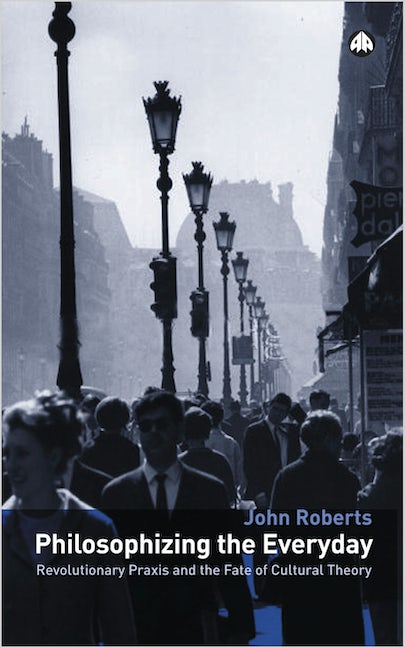
Philosophizing the Everyday
Revolutionary Praxis and the Fate of Cultural Theory
Series: Marxism and Culture
John Roberts argues that this understanding of the everyday downgrades its revolutionary meaning and philosophical implications. Bringing radical political theory back to the centre of the discussion, he shows how notions of cultural democratization have been oversimplified. Asserting that the everyday should not be narrowly identified with the popular, Roberts critiques the way in which the concept is now overly associated with consumption and 'ordinariness'.
Engaging with the work of key thinkers including, Lukács, Arvatov, Benjamin, Lefebvre, Gramsci, Barthes, Vaneigem, and de Certeau, Roberts shows how the concept of the everyday continues to be central to debates on ideology, revolution and praxis. He offers a lucid account of different approaches that developed over the course of the twentieth century, making this an ideal book for anyone looking for a politicised approach to cultural theory.
John Roberts is Professor of Art and Aesthetics at the University of Wolverhampton. He is the author of a number of books, including The Intangibilities of Form (Verso, 2007), Philosophising the Everyday (Pluto, 2006) and Revolutionary Time and the Avant-Garde (Verso, 2016). He edited the English translation of Boris Arvatov's classic Art and Production (Pluto, 2017).
An important study of the possibilities for cultural democracy has arrived in our midst. In his noteworthy short book, Philosophizing the Everyday, John Roberts pins down with all the forcible precision of a nail gun sixty years of critical theorising between 1917 and 1975 about everyday life and a conflicted reality.
- Alex Law Variant, issue 29Prologue: Dangerous Memories
1. The Everyday and the Philosophy of Praxis
2. The Everyday as Trace and Remainder
3. Lefebvre’s Dialectical Irony: Marx and the Everyday
Epilogue
Notes
Bibliography
Index
135mm x 215mm

